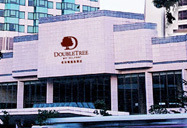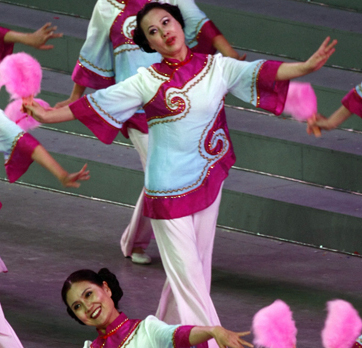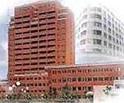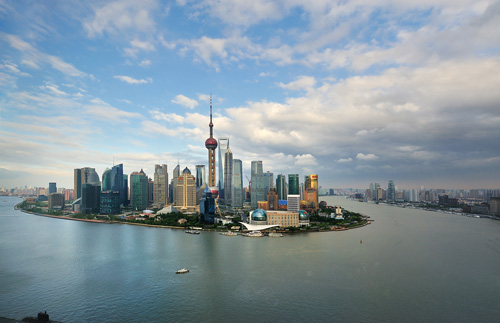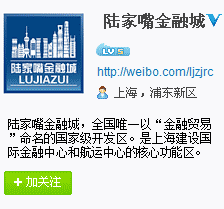'10-year battle' to solve city's air pollution
|
|||||||||
( shanghai.gov.cn )
Updated: 2013-12-27
The battle to solve Shanghai’s air quality problems will be a long one, an official said yesterday.
Zhang Quan, director of the city’s environment protection bureau, told local legislators it would take roughly 10 years for the city and the whole Yangtze River Delta region to solve the air pollution problem.
“We shall have determination to prepare for a tough and long battle,” Zhang told them. The heavily polluted air shrouding Shanghai “can hardly change in a short period of time.”
Pollution forecasts and warnings will be enhanced as there will be no immediate relief from the smoggy weather, he said.
Shanghai has been encountering more and more polluted days in recent years with PM2.5 particles, the tiny airborne particles hazardous to health, remaining the main pollutant.
The authority will take some short-term measures, including halting construction and some vehicles during polluted days to solve the air pollution temporarily, but it would need the cooperation of all the Yangtze River Delta cities and the nation to solve the problem, Zhang said.
Vehicle and factory emissions accounted for 50 percent of the city’s pollution, followed by dust from construction sites (10.5 percent), power stations (7.3 percent) and straw burning (10 percent). The other 20 percent was from other provinces.
Zhang said the city government will launch a joint campaign with neighboring Zhejiang and Jiangsu provinces soon to cut PM2.5 levels by 20 percent within three years.
Meanwhile, more severe punishments will be imposed on factories and vehicles which fail to follow bureau stipulations.
Vehicles found discharging black smoke face a fine of up to 500 yuan (US$82). Those responsible for pollution or involved in serious environmental violations can be fined up to 100,000 yuan.
Companies discharging air pollutants without licenses or unloading excessive level of air pollutants, even if they are licensed, will be fined up to 100,000 yuan or possibly shut down if they fail to rectify problems in a certain period of time.
The traffic authority is to eliminate the remaining 10,000 heavily polluting public buses by next July, said Sun Jianping, director with the city’s traffic and harbor management bureau.
All trucks at local construction sites will be cleaned with water cannon and dust cleaning machines before running onto the roads to cut down on flying dust, Tang Zhiping, director with the city’s construction and transportation commission, said.
Shanghai is to include air pollution in weather alerts in the next few days and the city government will suspend school classes in the event of high air pollution warnings. The air pollution alerts will be in four levels — blue, yellow, orange and red like the city’s current weather alerts — with guidance to residents on each level.
The government will also take new measures to improve the water quality in rivers and creeks, Gu Jinshan, director with the city’s water authority, said in answer to questions by the local legislators.
“The water authority will take some cleaner water from the Yangtze River to the Taihu Lake, or the upstream of most of the city’s rivers, to improve the water quality,” Gu said.
More than half of Shanghai’s rivers and lakes are heavily polluted and much of their soil beds seriously contaminated. Some 53 percent of local surface water was below Grade V, the worst of five water quality levels.
“A joint campaign will be launched among Yangtze River Delta cities along the river to avoid the dead pig dumping accident,” Gu said, referring to an incident in March when rotting bodies of more than 10,000 pigs were found on the Huangpu River that provides 22 percent of Shanghai’s tap water.
A farm in Jiaxing City, Zhejiang Province, eventually admitted dumping the pigs.
With a better joint mechanism, large scale salvage operations could be launched much earlier, Gu told the legislators.

